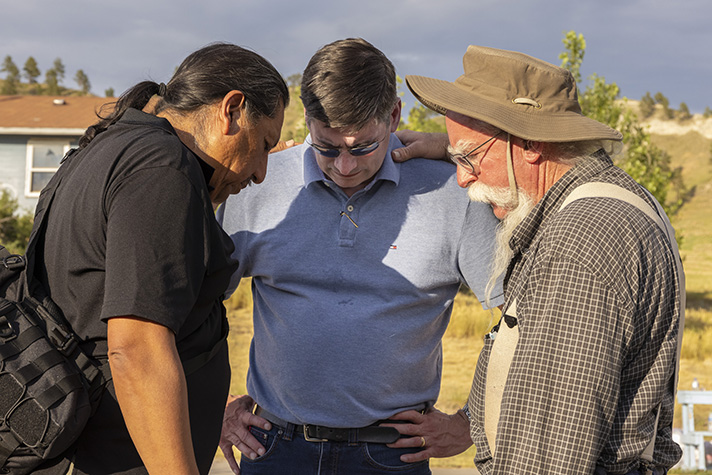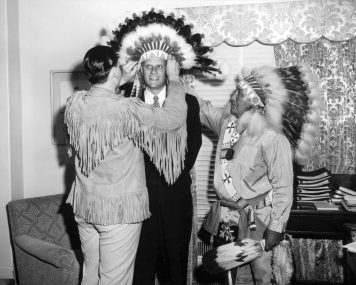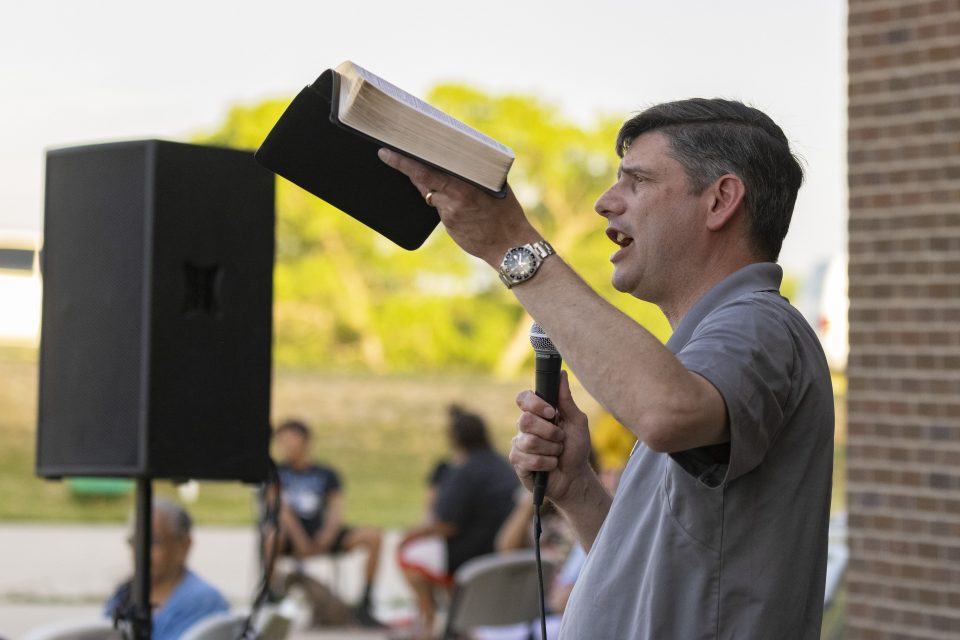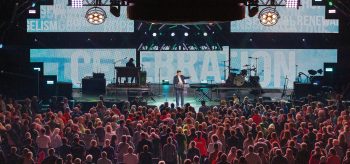
The Billy Graham Evangelistic Association (BGEA) is partnering with CHIEF (Christian Hope Indian Eskimo Fellowship) to hold their first-ever Native Peoples Christian Leaders Conference May 3–4 in Rapid City, South Dakota.
Will Graham will welcome Native Christian leaders at the free gathering, intended to encourage and equip leaders with the skills to lead their churches, organizations and other institutions in evangelism. Joshua Chavez, pastor of Revive Church in Long Beach, California, will lead worship at the event.
“To be around other believers from different colors, worshiping the same Lord [at the conference] will be inspiring,” said Will Graham.
With a heart for native people, Will Graham is excited to hear from their leaders. “We have the same burden as they do. Everyone there is going to have a burden to reach more Native Americans with the Gospel.”
Get more insight on the conference through the following Q&A.
About the Speakers
Will Graham: Vice President and Associate Evangelist for the BGEA and Executive Director of the Billy Graham Training Center at The Cove
Huron Claus: President of CHIEF
Reynard Faber: Honorary and Traditional Chief for the Jicarilla Apache Tribe
Craig Smith: Leader of Tribal Rescue Ministries
James Rattling Leaf, Sr.: Member of the Rosebud Sioux Tribes
Q: What is the heart and purpose of the Native Peoples Christian Leadership Conference?
“We just want to bring together the church. We want to bring together indigenous leaders to speak for themselves, to really articulate what the opportunities are, what the challenges are and how BGEA can come alongside not only the indigenous churches, but also these parachurch ministries as well.” —James Rattling Leaf, Sr.
“Only a sovereign, divine move of God I think is equal to the task of reaching native hearts that have been pretty hardened because of history and perceived images that our people have had toward the Gospel. I think it’s a strategic event for such a time as this. … This could very well be a moment God uses to unite a unique work among native people. He’s done that historically among others around the world.” —Craig Smith
Q: How open are the native peoples to the Bible, evangelism and the Gospel?
“It’s challenging. There’s a lot of hard things happening to many people here on reservations. A lot of deaths, a lot of suicides. A lot of things you think that the answer would be Jesus but there’s a barrier here, there’s a real spiritual warfare that’s happening within our reservations.
“There is this renewal in Indian spirituality. … We have to counter that with [God’s] love; we have to counter that with grace and we’ve got to care.” —James Rattling Leaf, Sr.

Q: What did Billy Graham once say about Native Americans?
“Billy [Graham] said that Native America is like a sleeping giant and one day he’s going to arise and be a part of a national revival. And to this day, Native American churches all across this country refer to that reference.” —Huron Claus
Q: What is your heart for Native Americans?
“Many in the Native American community have suffered with brokenness, despair and hopelessness, but I believe God has an incredible plan to use them for His glory. The flame has embers in it right now and we want to help fan the flame. It falls to the Holy Spirit to ignite it.”
“I think there’s a real hunger among Christians to see a great revival but also there’s a huge burden to see Native Americans come to know Christ. I think the two are the same. That’s what my granddaddy saw—it was going to be the Native Americans to come to know Christ. They’re going to lead this nation in a big revival.” —Will Graham
Q: What is the biggest challenge in evangelizing native people?
“The church has really struggled with helping indigenous people, who come from animistic backgrounds, understanding how the same Gospel, same message, applies to people who hold spiritism at its core.” —Craig Smith
Q: Why are you talking about evangelism and the native heart?
“For a long time, there’s been a presumption of what native people should tell other native people about doing evangelism. There’s not been a concise model for Native America and it creates confusion for what evangelism should look like among Native America.” —Reynard Faber
Q: How do you teach people to have a Biblically healthy indigenous faith when Christianity is viewed as a “white man’s” Gospel?
“When we look at the humanity of Christ, He relates more to the indigenous people than North America. We have to give [native people] these kinds of truths to help them understand that this Jesus they’re rejecting is not a white man. He is so much more attuned to us in our native identity, culture, upbringing and status in life.” —Craig Smith
Q: Why aren’t churches winning more Native Americans to Christ?
“There’s a great aspect of spiritual immaturity. … There’s no discipleship and there’s no follow-up. For evangelicals to be successful, there needs to be those key elements. It can’t just be leading people to Jesus and forgetting about it.” —Reynard Faber
Q: Why is raising up students and young adults to be Christian leaders an important issue?
“The greatest need within our native community is discipleship, leadership development—not just in the church but in all areas of life. We need young Christian leaders that will stand out in our tribal governments, who will be examples within our homes, will be expressions of Christ’s love in our communities.” —Huron Claus
Q: Why hold the conference in the Black Hills?
“In the Indian cultural, spiritual way, the Black Hills is a very important place to many tribes. We’re holding this leadership gathering in the Black Hills, so I think that says something about how we want to bring people together. … People like Will Graham, they want to better understand how we do this work among indigenous people. … When we bring indigenous leaders together in a very cool place like the Black Hills to talk about Jesus and how to advance the Gospel, with influencers, with thought leaders, something good’s going to come from it.” —James Rattling Leaf, Sr.



